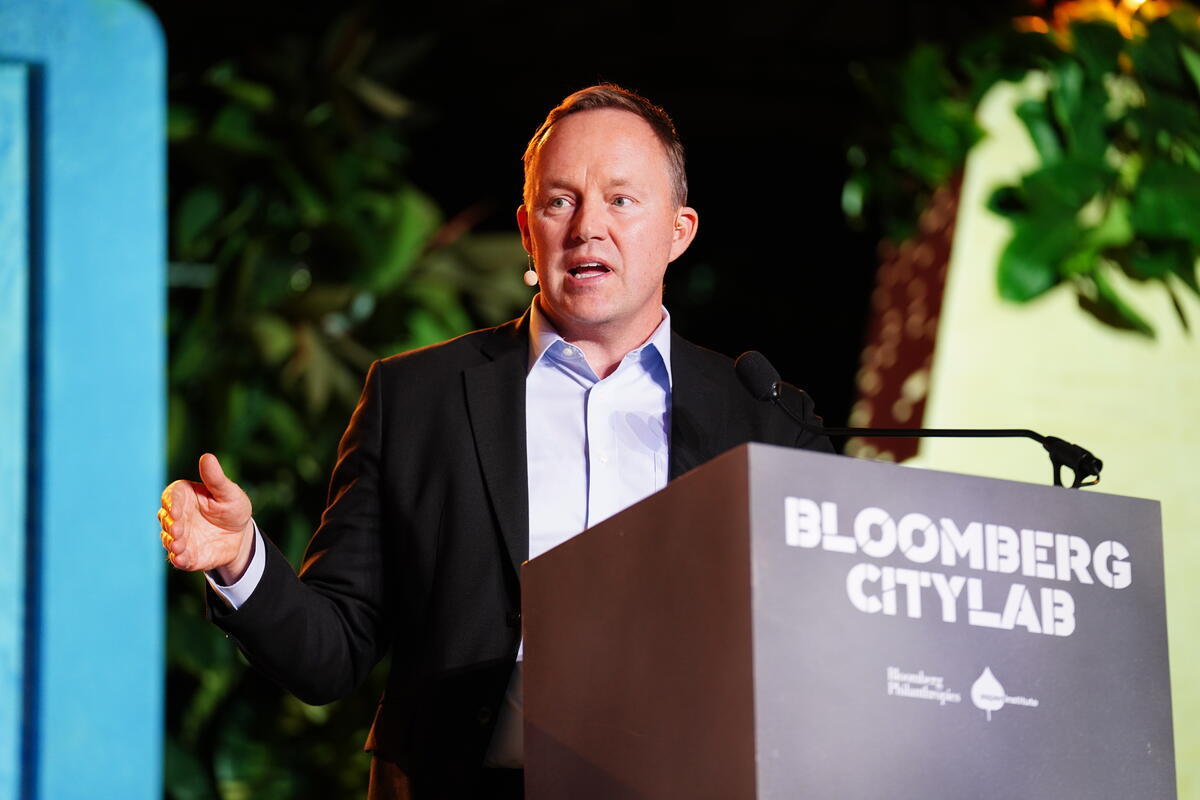
Cities compete for $1m innovation funding boost
25 June 2025
by Jonathan Andrews
Fifty cities have been named finalists in the 2025 Bloomberg Philanthropies Mayors Challenge, a global competition supporting innovative, data-driven solutions to major urban challenges.
Selected from over 630 applications across 33 countries, each city will receive US$50,000 to prototype its idea and participate in an intensive development programme. In January 2026, 25 of the most promising proposals will be awarded US$1 million each to support full-scale implementation.
“This year’s Mayors Challenge finalists reflect a new standard for public sector achievement: ambitious, yes, but also grounded, disciplined, and ripe for real impact,” said James Anderson (pictured), who leads the Government Innovation programme at Bloomberg Philanthropies.
Several of the shortlisted cities are focusing on the role of technology and mobility in strengthening urban systems. Detroit has proposed a single-entry digital platform that consolidates fragmented property information–such as inspection records, taxes and utilities–into one publicly accessible interface.
“We will work with renowned experts and peers to advance our proposal to create a powerful, single entry that connects currently scattered information,” said Mike Duggan, Mayor of Detroit. “We will revolutionise how owners can access this vital information, as well as how our city plans and provides its most essential services.”
South Bend is integrating artificial intelligence into its 311 non-emergency service. The city’s concept involves using predictive analytics to anticipate and resolve infrastructure issues–such as potholes or streetlight failures–before residents report them.
“Their proposals reflect a new standard for public sector achievement,” said Anderson. “They’re not just thinking creatively–they’re designing solutions that reckon with the complexity of implementation and the urgency of their residents’ needs.”
Other finalists include:
- Belfast has been recognised for a proposal to transform 200 kms of neglected alleyways into community-owned green spaces to create safer, healthier, and more connected communities.
- Toronto is engaging local food organisations and entrepreneurs (including food banks and restaurants) to provide mid-morning meals that reflect the cultural diversity of the community to all students in schools, reducing student hunger.
- Honolulu is building rooftop and community gardens directly into new developments and infrastructure, including a new rail line, to make fresh produce more accessible for underserved populations.
- Seattle is transforming the city’s largest public event venue into a zero-waste campus by introducing reusable dishes and cutlery, onsite composting, and improved waste separation services.
- San Francisco is reimagining the public transit system to be more welcoming and responsive to riders’ everyday needs by improving customer feedback mechanisms, addressing user pain points in design, and introducing training and incentives for staff.
- And Boston is applying AI and mapping tools to improve student travel routes, with the aim of boosting school attendance and reducing transit-related friction.
The 50 cities will attend Bloomberg Philanthropies’ Ideas Camp in July, where they will refine their proposals alongside peers and experts from across the world. The competition, now in its sixth round, is part of Bloomberg’s broader effort to scale locally driven solutions across its global Cities Idea Exchange.
Image: Bloomberg Philanthropies













